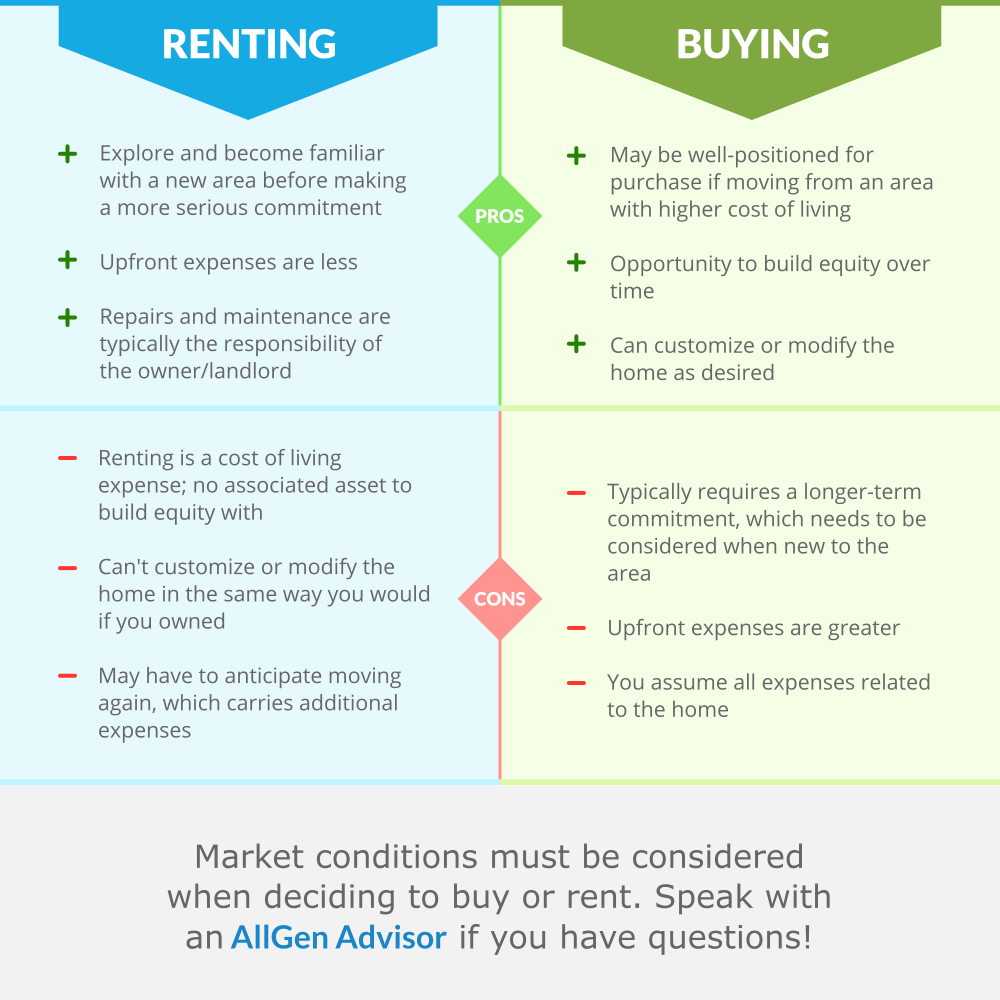If you’re thinking about moving, you’re not the only one. Since COVID-19 has increased the number of jobs that can be done remotely, people don’t have to live in the same city as their employers anymore.
Many people are considering relocating for financial reasons. Their strategy is to move somewhere with a lower cost of living while maintaining a paycheck that reflects a more expensive city, like New York City or Chicago.
Orlando and the surrounding Central Florida area have become a popular option for financial and tax reasons. But with the entire country to choose from, people are especially drawn to Orlando for its beautiful weather and the year-round outdoor activities Central Florida has to offer. In addition to the beautiful weather, Orlando is known worldwide for its premier theme park attractions, including Walt Disney World and Universal Studios.
So now that you’ve decided to move to Orlando, what do you need to do?
To Buy or To Rent?
One of the biggest decisions that needs to be made when moving to a new location is whether to rent or own. There are pros and cons to consider on both sides.
Timing and Finances
For some, renting makes more sense than owning. For others, buying a home is the right thing to do. Regardless, you may want to consider renting first. Renting gives you the ability to become familiar with your new surroundings – without the long-term commitment of buying. After renting, you might decide that you prefer to live in a different neighborhood or area of town.
There is also a significant financial difference between the two. Renting requires smaller upfront expenses than the down payment and closing costs associated with purchasing a home. Additionally, most repairs and maintenance items are eliminated as that is the responsibility of the landlord.
If you’re moving from a higher cost of living area to Orlando, then by selling your home in your current city, you’ll likely be well-positioned to buy a home in Central Florida. However, market conditions are also an important factor to consider when deciding to buy or rent.
Renting literally “buys” time to do your due diligence and get a better feel of the area before making a very important, more permanent decision.
Additional Resources
It’s a good idea to talk to a local real estate professional as well as discuss such a major purchase like this with a fiduciary financial advisor so you can determine your optimal budget to keep you on your Path to Financial Freedom.
Check out Zillow or Realtor for home listings, which includes both rental properties and those available for purchase.
Purchase Home Owner’s or Renter’s Insurance
As soon as you’ve signed the contract for your new house, you should start shopping around for homeowners’ insurance. Depending on where you live, a standard homeowners’ insurance policy may not cover certain weather events like hurricanes or floods. In fact, in some areas of Florida, purchasing extra insurance packages to cover floods and hurricanes may be required.
Renter’s insurance covers your personal belongings rather than the property itself. This means that your renter’s insurance should cover any damage to your belongings that may occur during a hurricane as well as the cost of having to make alternative living arrangements if your home is damaged and temporarily unlivable. Renter’s insurance won’t cover any damage to the property itself, but that’s because property damage should be covered by the landlord’s homeowner’s insurance.
Set Up Utilities
Before you actually move into your home, you’ll want to set up utilities so it’s ready as soon as you arrive. These include gas, water, electricity, and (because it’s 2021) the Internet. You’ll want to do this several weeks before you actually move in so that you can ensure everything is turned on and working ahead of time.
These may be some helpful resources:
https://www.duke-energy.com/Home
https://www.ouc.com/residential
https://www.orlando.gov/Trash-Recycling
https://www.orangecountyfl.net/WaterGarbageRecycling/GreenClean.aspx#.YRQruohKhPY
https://www.seminolecountyfl.gov/departments-services/environmental-services/solid-waste-management/
https://www.orangecountyfl.net/watergarbagerecycling/waterservice.aspx#.YRQsIIhKhPY
https://www.seminolecountyfl.gov/departments-services/environmental-services/customer-service/
https://www.spectrum.com/internet-service/florida/orlando
https://www.centurylink.com/local/fl/orlando
https://www.att.com/local/internet/florida/orlando
Change Your Driver’s License
Once you’ve moved into your new home, you’ll need to start the process of changing your address. The first step is to make sure that official mail is coming to your new address. This will allow you to use mail as proof of address when you go to the DMV to change your driver’s license. Bills from the utilities you recently set up are typically good options.
Find a Financial Advisor
Regardless of whether you have a financial advisor already, it’s important to establish a relationship with a local fiduciary advisor in advance of moving to your new home. An Orlando financial advisor can help you to understand various nuances like the tax implications of your move. Taxes vary from state to state and even from city to city, so it’s important to find an experienced advisor.
In the event that you need more help, an Orlando financial advisor can also help you find a trusted source for legal advice, home buying, and a local CPA.
If you have questions or concerns, you can contact us at any time.
We’re here to serve. 407-210-3888
Important Disclosures: The information provided here is of a general nature and is not intended to answer any individual’s financial questions. Do not rely on information presented herein to address your individual financial concerns. Your receipt of information from this material does not create a client relationship and the financial privileges inherent therein. If you have a financial question, you should consult an experienced financial advisor. Moreover, the hiring of a financial advisor is an important decision that should not be based solely upon blogs, articles, or advertisements. Before you hire a financial advisor, you should request information about the financial advisor’s qualifications and experiences. Past performance is no guarantee of future results. All expressions of opinion are subject to change without notice in reaction to shifting market conditions. Data contained herein from third party providers is obtained from what are considered reliable sources. However, its accuracy, completeness or reliability cannot be guaranteed. Examples provided are for illustrative (or “informational”) purposes only and not intended to be reflective of results you can expect to achieve. AllGen Financial Advisors, Inc. (AllGen) is an investment advisor registered with the SEC. AllGen does not provide personal financial advice via this material. The purpose of this material is limited to the dissemination of general information regarding the services offered by AllGen. The Disclosure Brochure, Form ADV Part II, which details business practices, services offered, and related fees of AllGen, is available upon request.








